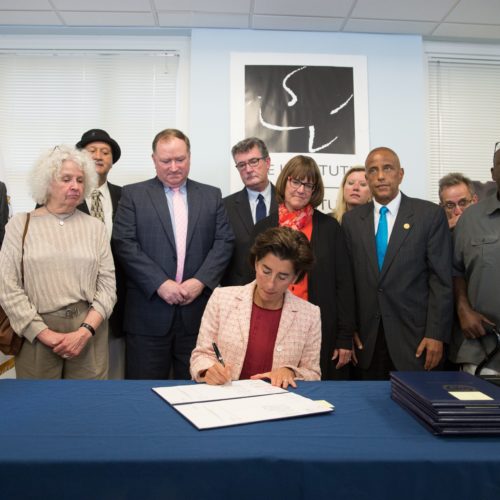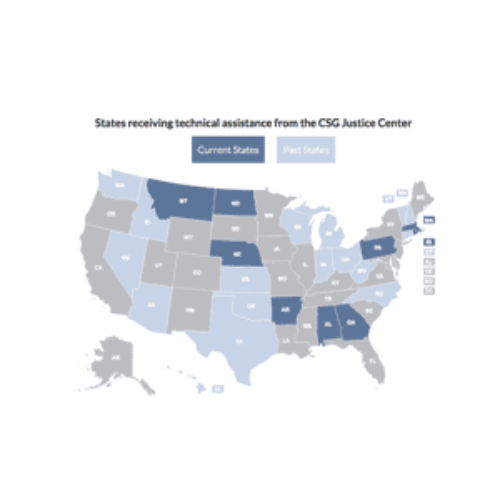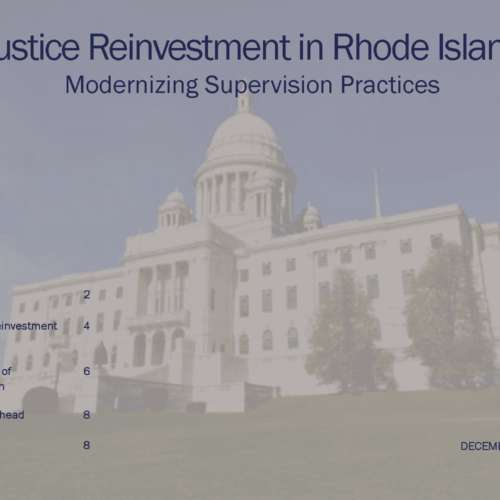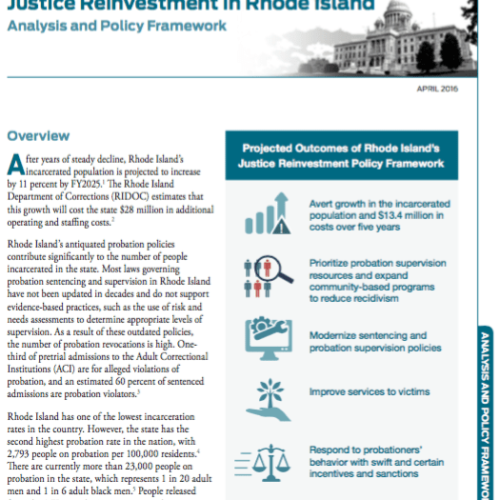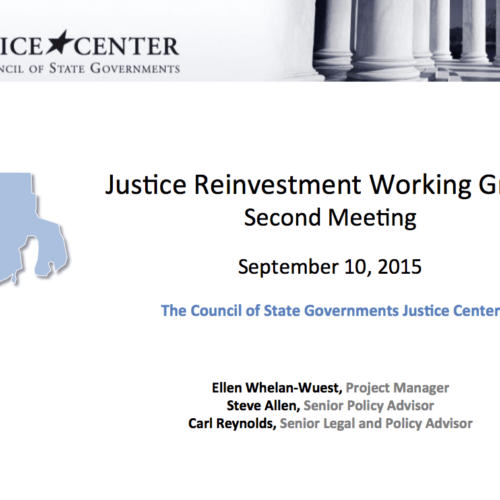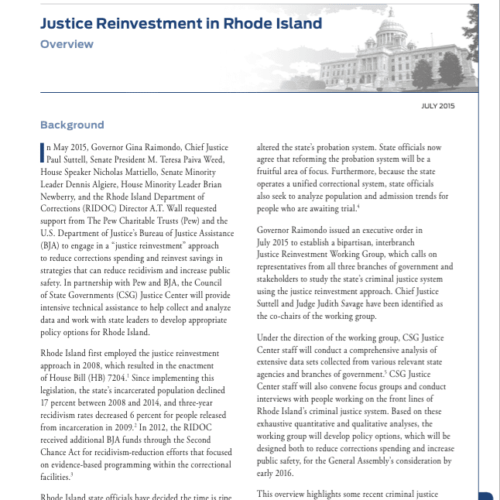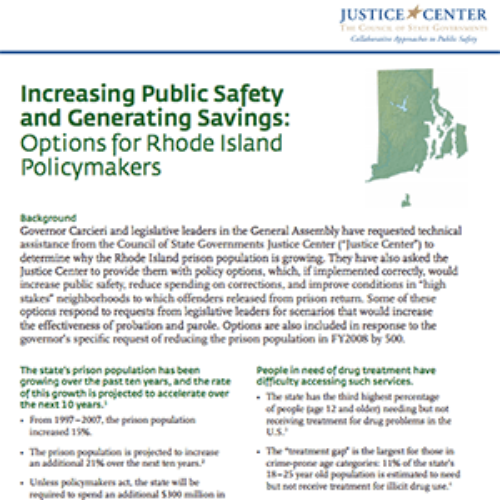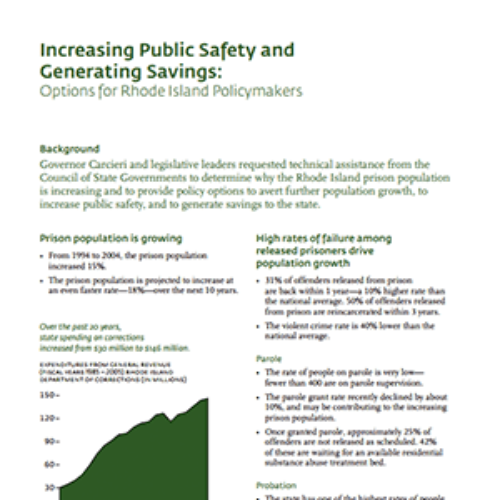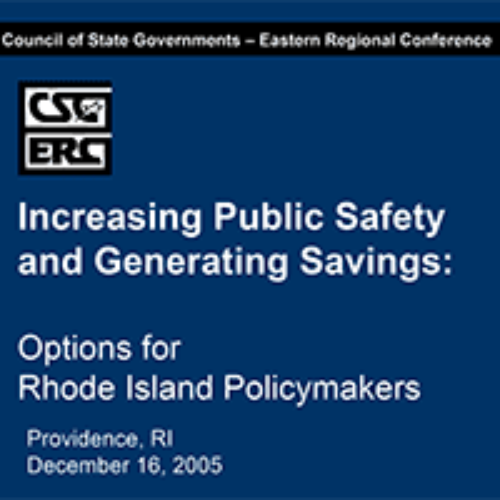Justice Reinvestment in Rhode Island
The Problem
In 2015, the Rhode Island Department of Corrections projected that after years of steady decline, the state’s incarcerated population would grow 11 percent by 2025, at an estimated cost to the state of $28 million in additional operating and staffing costs.
How JRI Helped
To address this challenge, state leaders from all three branches of government requested technical assistance from the CSG Justice Center to analyze the state’s criminal justice data, interview stakeholders from across the criminal justice system, and collaborate with the state’s Justice Reinvestment Working Group to develop data-driven policy options designed to reduce spending on corrections and increase public safety.
Analyses conducted by the CSG Justice Center revealed that Rhode Island’s outdated probation policies had contributed significantly to the number of people incarcerated in the state. One-third of pretrial admissions to the state’s Adult Correctional Institutions (ACI) were for alleged violations of probation, and an estimated 60 percent of sentenced admissions were for probation violations.
The bipartisan 27-member Justice Reinvestment Working Group met five times between July and December of 2015 to address the issues in the state’s criminal justice system—particularly in probation. Ultimately, a package of legislation passed with bipartisan support in both the Senate and the House and was signed by then Governor Gina Raimondo on October 5, 2017.
Implementation and Impacts
These policies ensure that judicial decisions and supervision practices will be informed by risk and needs assessments, benefits for victims of crime will be expanded, the superior court will have the opportunity to create a diversion program, and there will be more structured sentencing for certain crimes.
In addition to passing this legislation, in June 2016, the Rhode Island Supreme Court adopted a series of amendments to the Superior Court Rules of Criminal Procedure and Superior Court Sentencing Benchmarks. Earned discharge for people on probation was included in these rules. Officers can now petition the court to terminate supervision for people on probation who are low risk and compliant, thus prioritizing resources for people who are assessed as being at a moderate or high risk of reoffending.
Also in June 2016, the General Assembly passed and adopted a budget that included an upfront investment of $893,000 earmarked for the Rhode Island Department of Corrections to support enhancements to risk and needs assessment, cognitive-behavioral programming, and hiring and training additional probation officers.













